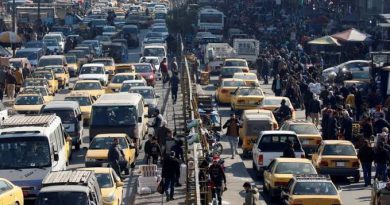UP: Tariq Mansoor’s appointment increases the BJP’s Muslim representation in the state legislature to four, the highest among all parties
With the recent appointment of Tariq Mansoor, Vice-Chancellor of Aligarh Muslim University, as a member of the Uttar Pradesh Legislative Council, the BJP now has four Muslim members, the most of any party in the state, including the Samajwadi Party. (which has 2 MLCs).
Mansoor, a Pasmanda leader, was appointed to the Legislative Council, forcing him to resign as Vice-Chairman. This change was made as part of an effort to include prominent voices from the community.
Danish Azad Ansari, a Pasmanda and state minister, and Bukkal Nawab and Mohsin Raza, both Shia Muslim sect members renowned for their less hostile attitude towards the BJP, are also members of the council.
Out of a population estimated to be roughly 20% Muslim, UP has six Muslim MLCs and 31 MLAs (down from 33 after Azam Khan and his son Abdullah Azam were disqualified).
“By nominating a Muslim from a prestigious institution like AMU, the BJP is trying to convince Muslims that it wants to take them along, and wants their support in the service of the nation,” a senior BJP functionary said. The party is laying the groundwork for the Lok Sabha elections in 2024. It may even provide tickets to some Muslims in urban local body elections in the coming days.”
Former Samajwadi Party MLC Bukkal Nawab resigned in July 2017 following the BJP’s election victory in the state. The BJP nominated both Nawab and Mohsin Raza to the Legislative Council in 2018. This was the party’s first representation of Muslims in the Upper House in nine years, following the death of Shia Sheema Rizvi in 2009.
The terms of Nawab and Raza expire next year.
Ansari was elected to the Upper House last year.
The BJP can add two Legislative Council members, boosting their total to 80 of the Upper House’s 100 members.
“We have chosen to send Muslims to the Legislative Council because our Muslim candidates did not win in the Assembly elections,” a BJP leader revealed.
During the 2012 Assembly elections, the BJP chose Shakeel Alam Saifi for the Sahaswan constituency in Badaun district; however, he received only 1% of the vote, coming sixth.
Mohammad Gaffar Khan was the party’s lone Muslim candidate for Tilhar in 2002, however he lost. Khan sought for office again in 1996, this time as the BJP’s sole Muslim candidate, however he was defeated. Furthermore, Khan’s vote share plummeted by 50% from 1996 and 2002. (8.75 per cent of the votes).
Mukhtar Abbas Naqvi was the BJP’s Muslim candidate for Mau in 1991 and 1993. Despite losing by 133 votes in 1991, the BJP won the state with 221 seats on the strength of the Ram Janmabhoomi agitation.
“The defeat of Muslim candidates running under the Lotus symbol in Assembly elections shows that the party has lost the community’s trust following the Ram Janmabhoomi incident.” “The BJP has taken the Legislative Council route to rebuild that,” a BJP leader stated.
Last year, the state BJP’s minority wing met with Pasmanda intellectuals in Lucknow and Rampur. Their outreach activities contributed to their triumph in the Rampur bypoll.
The Pasmanda outreach effort was created in response to Prime Minister Modi’s demand for the party to assist disadvantaged groups in all localities. According to the UP BJP, around 4.5 crore Muslims have benefited from government programmes implemented by the Modi-Yogi administration.
The UP BJP’s minority branch intends to focus on the 44,000 election stations in the state that have a Pasmanda presence.
According to Kunwar Basit Ali, BJP minority wing state president, the party’s nomination of a Muslim demonstrates its commitment to “Sabka Saath, Sabka Vikas” by providing representation to all communities.


